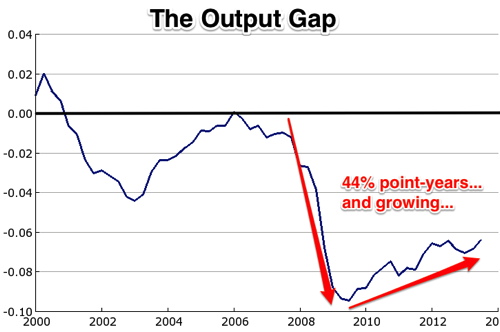Paul Krugman: Robert Gordon vs. the Androids:
I think I have a new way to explain why my gut feeling is that Bob [Gordon], while making a persuasive case (pdf), is probably wrong. Bob’s key point… is that the digital revolution really just doesn’t match up to the major innovations of the Second Industrial Revolution of the late 19th century, which he contends drove growth well into the 20th century.. indoor plumbing beats iPads.
But… what would a digital revolution that lived up to the past look like?… Suppose that we learned to build true androids… that would be transformative… end diminishing returns to capital accumulation… raising GDP per capita would simply be a matter of multiplying the androids. So how are things going on the android front? A decade ago I would have said “very badly”…. But something has happened—things that were widely regarded as jokes not long ago, like speech recognition, machine translation, self-driving cars, and so on, have suddenly become more-or-less working reality…. They’re using big data and correlations and so on to implement algorithms–mindless algorithms, you might say. But if they can take people’s place, does it matter?
The anti-Gordon case, then, would be that something like my android revolution is underway. If you buy that case, you can become a technological optimist….
You might also be a pessimist in the sense that you wonder what happens to wages once androids can do most human work.
Also, Skynet will kill us all.
But that, anyway, is where I would place the issue.

